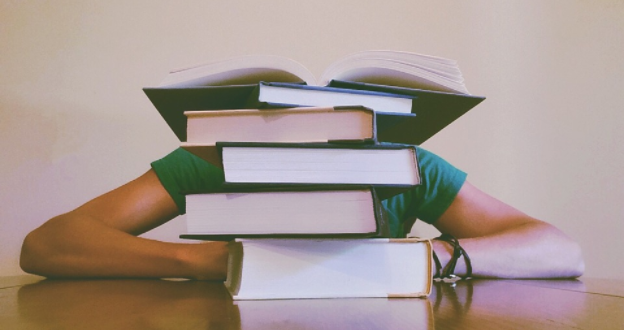By R. Brady
Everyone learns differently. From visually memorizing information to writing it down multiple times, retaining information and study habits vary from student to student. Though there are many different ways to study and memorize information, learning types have been organized into four categories—visual, auditory, reading/writing, and kinesthetic.
- Visual Learners
Visual learners learn best through connecting images to words. For example, my eighth grade earth science teacher would discuss a topic and then show an image or diagram that correlated with it. On tests, when I saw the word or term, I was able to visually connect it with the image. A typical visual learner uses relationships between images and words to retain information. Connecting the two ideas makes the information clear and easier to understand.
- Auditory Learners
Auditory learners prefer hearing the information rather than seeing the information. I normally do not learn well with this method, as I find lectures unhelpful and often let my mind wander, However, auditory learners are able to listen and remember the information very clearly. Repeating a word or phrase out loud is also a method that auditory learners use to memorize or study. One of my friends memorized one hundred and fifty digits of pi by repeating the numbers over and over, adding three numbers to the sequence each time she said the numbers. Hearing the information is the best way for auditory learners to memorize the information.
- Reading/Writing Learners
Reading/writing learners learn best by—you guessed it—reading and writing. Words and text are easier to remember than visual images or spoken words for this type of learner. One of my classmates studies very quickly by simply reading through the notes once or twice. At first, I was surprised; it takes me hours to study, as I like to write the notes multiple times and then use different colors to visually remember the information. However, my friend was able to thoroughly study just by reading the notes because of her reading learner type. Studies have proven that writing down information multiple times helps retain information, so this method of memorization works particularly well with reading/writing learners.
- Kinesthetic Learners
Kinesthetic learners need hands-on experiences or activities to reinforce the information. If you feel restless in class and feel the need to stand up or move around, you might be a kinesthetic learner. Labs in science class or acting out scenes in literature class are a few methods that help kinesthetic learners remember what is learned in class. Role playing is another activity that helps kinesthetic learners. In one of my literature classes, we pretended to host a trial that paralleled the events of the book we were reading. That was two years ago, and I still clearly remember it. Activities and other experiences that require movement or role play help kinesthetic learners remember information.
Not everyone is just one type of learner. My brother and I consider ourselves part visual and part reading and writing learners, while another friend of mine claims to be part reading and writing and part kinesthetic. After researching the four learning types and taking online quizzes to find out which type I am most like, I realized why some methods of studying are best for me. For example, the writing learner part of me studies best by writing study guides by hand. The visual learner part of me uses different colors and images to visually remember the words on the page. It is important to understand which learner you are to study effectively. Before I discovered the writing method of learning, I had been trying to read the notes and hear the information to study. However, it took hours to memorize the information by reading. Once I figured out that writing was the best way for me to memorize, I was able to study faster and more thoroughly.
From this information, I hope that you can discover which learner you are so you can use the resources you need to study in the best way possible. Sometimes, a different study method is all it takes to improve grades. Though it may seem other people have it easy because they are quick memorizers, always remember that learning is different for everyone and that everyone uses different methods to retain information. My brother has always been able to memorize information quickly by reading through notes once or twice. Though that method could sometimes be helpful to me, I felt frustrated that he would receive better grades even though I had studied a few hours more than him. However, once I discovered the learning methods that were best for me, my grades rose and I was less frustrated. Using the knowledge of different types of learners can help students reach their full potential in their abilities to memorize and learn information.
 Tempus Magazine By Students, For Students
Tempus Magazine By Students, For Students 



